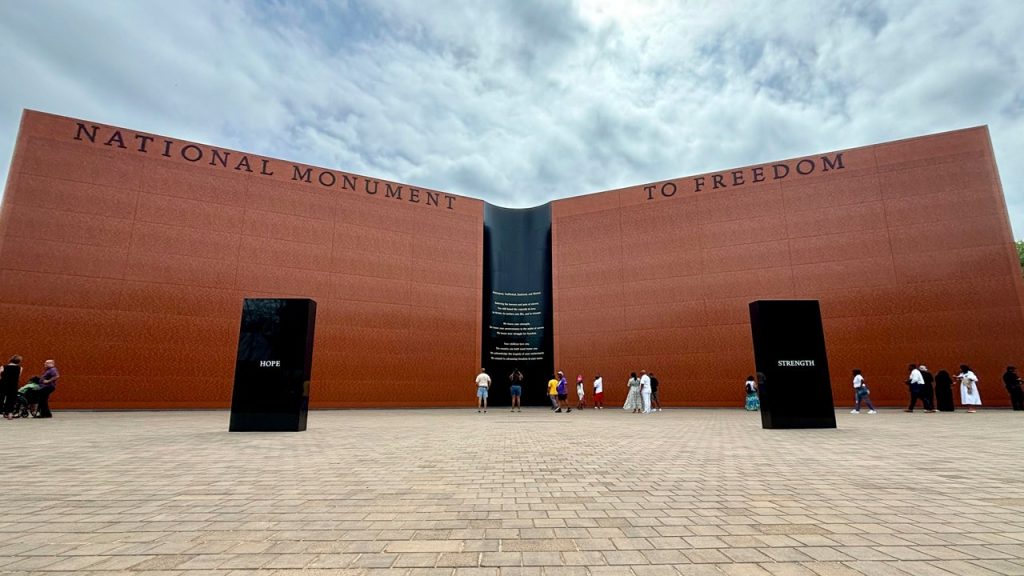The Equal Justice Initiative, a criminal justice reform nonprofit, dedicated its National Monument to Freedom on June 19, 2024, in the new Freedom Monument Sculpture Park in Montgomery, Alabama. The monument stands four stories tall and is inscribed with 122,000 surnames chosen by formerly enslaved people according to the 1870 Census after being emancipated at the end of the Civil War. These names represent the more than 4 million enslaved individuals who were freed. The organization invoked Juneteenth in its dedication, a holiday that marks the end of slavery, specifically commemorating the day enslaved people in Galveston, Texas, learned of their freedom in 1865.
During the dedication ceremony, Equal Justice Initiative founder Bryan Stevenson highlighted the resilience and strength of enslaved people, acknowledging the struggles they faced but also celebrating their perseverance. Juneteenth is seen as a day to confront the brutality of slavery and its lasting impacts, while also honoring the dignity and courage of those who navigated through those adversities. The holiday reminds people of the struggles that enslaved individuals overcame and the importance of acknowledging and celebrating their resilience. Stevenson emphasized the enduring hope and determination of enslaved individuals who never stopped believing in freedom despite the challenges they encountered.
The National Monument to Freedom features thousands of surnames representing the millions of enslaved people who were freed after the Civil War. The monument is intended to honor those who endured and survived slavery, serving as the centerpiece of the Freedom Monument Sculpture Park in Montgomery, Alabama. The park was created by the Equal Justice Initiative to tell the honest and unvarnished history of enslaved people in the United States. This site is the organization’s third, following the opening of the National Memorial for Peace and Justice and The Legacy Museum: From Enslavement to Mass Incarceration in 2018, offering a comprehensive narrative of the country’s history.
The dedication of the National Monument to Freedom on Juneteenth celebrates the resilience of enslaved individuals in the face of immense hardships and challenges. The monument serves as a reminder of the enduring legacy of enslaved people who resisted oppression, demonstrated strength, and strived for freedom despite the odds. The park includes exhibits such as slave cabins from an Alabama plantation, providing visitors with a tangible connection to the past and the struggles faced by enslaved individuals. Families like that of Dr. Michele R. Williams and her mother, Barbara Y. Williams, found a poignant link to their history as they searched for their family surname among the names inscribed on the monument.
The celebration of Juneteenth on the dedication day of the National Monument to Freedom signifies a critical moment for acknowledging the injustices of the past while also celebrating the resilience and strength of those who endured slavery. By commemorating the day when the last enslaved people were informed of their freedom after the Civil War, the dedication ceremony serves as a powerful tribute to the enduring legacy of those who refused to lose hope in the face of adversity. The inscriptions on the monument symbolize the millions of enslaved individuals who achieved freedom and continue to inspire people to confront the challenges of the present by remembering the struggles of the past.


